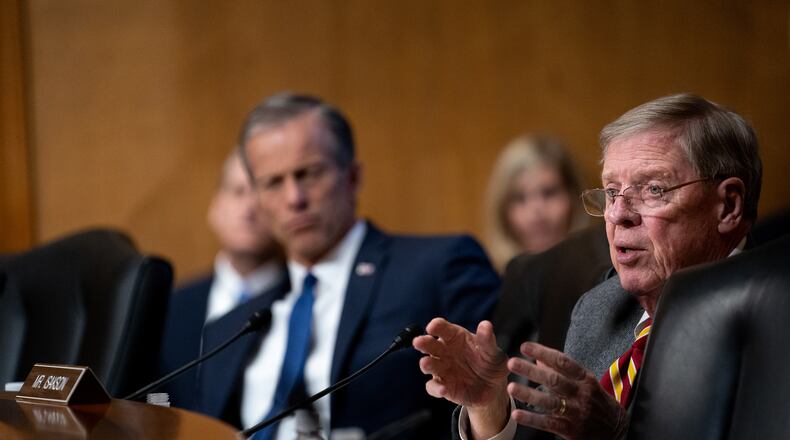Georgia U.S. Sen. Johnny Isakson and several of his GOP colleagues are upping the pressure on President Donald Trump to reject previously-floated auto tariffs ahead of a key deadline later this month.
Isakson and five other Senate Republicans met with Trump on Thursday afternoon to make their case. They were joined by Vice President Mike Pence, Commerce Secretary Wilbur Ross and about a dozen administration officials.
“He warned the president that moving forward with tariffs on foreign automobiles will hurt the American economy, and Georgia companies will be forced to decrease capacity and delay planned expansion if tariffs are imposed,” an Isakson spokeswoman said after the meeting.
GOP senators have been lobbying Trump to drop his threat to impose tariffs of up to 25 percent on European auto imports. They also want the president to reverse current steel and aluminum tariffs before Congress takes up his new trade agreement with Mexico and Canada.
Their overtures appeared to fall flat. Trump tweeted shortly after the meeting that his current steel “tariffs are working.”
Trump sees the tariffs as a way to protect the American manufacturers from cheap imports being dumped into the country from overseas.
Opposition to the strategy has united many of Georgia's GOP lawmakers on Capitol Hill who are typically loath to criticize the president, including U.S. Sen. David Perdue and Congressman Drew Ferguson, whose hometown of West Point contains a massive Kia Motors assembly plant.
Some of Georgia's most iconic businesses have been hit hard by the steel and aluminum duties Trump approved last year. That includes Coca-Cola, which raised its prices last summer to account for higher input costs.
The threat of auto tariffs has sent even more chills up the spines of Georgia's business community, which worries the state could lose jobs. Foreign automakers support more than 67,000 in the state, according to the industry trade group Global Automakers, and Georgia is home to major Porsche and Mercedes-Benz facilities.
The Brunswick and Savannah ports are also massive export-import hubs for cars and parts. They handled 630,000 autos in 2017, many made in the Southeast being exported for sale overseas, the AJC previously reported.
Mercedes warned last summer that tariffs could have a "devastating impact" on its business, leading to fewer sales at car dealerships, smaller operations and higher prices for new cars.
Trump had the Commerce Department investigate whether auto imports posed a national security threat earlier this year, much like he did with foreign steel and aluminum. He now has until May 18 to make a decision on the auto tariffs.
Read more:
About the Author
Keep Reading
The Latest
Featured



